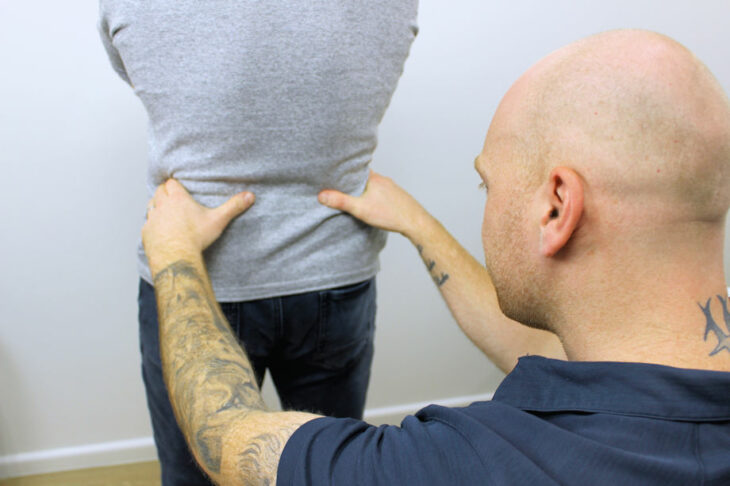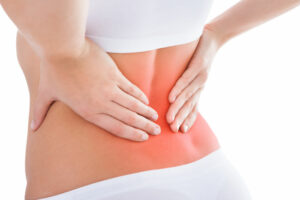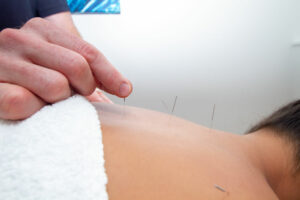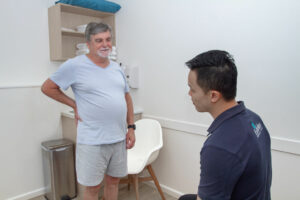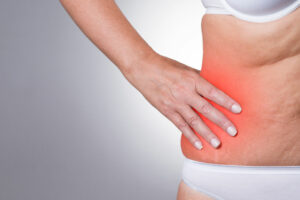Back Pain Can Be Horrid!
Let’s face it, no one wants ongoing neck or back pain. If you have been going through this then you of all people know how debilitating it can be, and want to get to resolving it for good.
One of the most common causes of ongoing, chronic neck or back pain is Bulging Discs. Bulging Discs are most common in people from their mid-30s to 50s and are twice as likely to affect males compared to females.
Really quick, a Bulging Disc is when a fundamental structure in our spine, called an ‘Intervertebral Disc’ is traumatized in a way-over time or suddenly as a result of an injury and ‘bulges’ out of it’s normal shape.
Typically, a bulging disc will result in significant pain-pain that is intense and debilitating that may either be localized in the neck or back or spread elsewhere-either up or down the spine or even radiating to the head, arms or legs. What’s worse, bulging discs don’t stop with just debilitating pain-when intervertebral discs bulge out of their normal shape they can compress or ‘pinch’ nerves which can lead to ‘pins and needles’ sensations, numbness and even intense shooting pain. All of these symptoms can be significantly debilitating for most people-whether it stops them from being able to attend their usual exercise routine or work. In extreme cases, bulging discs can lead to hospitalization and leave people with a complete inability to care for themselves.
The challenging part about bulging discs in comparison to other causes of neck or back pain is that it can be difficult to manage-it often won’t go away by itself without significant (months) of bed rest and will often get worse if you continue with your usual routine. Treatment options range from medications and manual therapies to surgical interventions that partially or completely remove the intervertebral disc or in some more extreme cases the surgical fusion of multiple segments of the spine to stabilize the bulging disc.
The good news is that if you have been suffering from neck or back pain due to a bulging disc, there is a lot that can be done to improve your symptoms not only in the short term, but also to help prevent your situation from getting worse. This means getting back to your full physical and mental capacity like you are no doubt dreaming about.
When it comes to bulging discs, so many people ask the question: “Can I cure my bulging disc?” and I’ve covered that in detail in my previous article HERE.
The short of it is: If you are asking about whether the bulge will ever return to it’s normal shape then, no, this is not possible, the thing is though that so many people with bulging discs(on an MRI) don’t actually have any back or neck pain. Bulging Discs are completely manageable and if dealt with effectively, you can get back to how you used to live your life without surgery or ongoing medications or treatment!
Keep reading to discover my 8 top tips to resolve Bulging Discs!
1. Patience and Consistency
Yes, you have likely heard this before but especially when it comes to structural neck or back injuries like bulging discs, it does actually take time to recover. Every single patient that we see with a bulging disc wants their problem sorted yesterday and I don’t blame them. Some people that we work with see pain relief quickly with treatment and make the mistake of returning to too intense a physical exercise regime too soon and aggravate the situation, which sends them backwards in their recovery. In addition to this, aggravating the situation may even result in herniation of the bulged disc or even bulging of other nearby intervertebral discs, which can significantly complicate the situation.
The good news is, if enough time is given to appropriate rest the symptoms experienced with a bulging disc will actually dissipate on their own without the need for treatment.
On average, it takes 4 weeks for a bulging disc to heal and then up to 3 months of Acupuncture and strengthening exercises in order to get back to the point of being able to do everything that you were able to before the injury.
In the early stages, I’m meaning the first 24 to 48 hours of a disc bulge, there is typically intense pain that may cause you to not be able to do much other than lie down and stay still. Likely the debilitating pain will cause you to be fatigued also and it’s instinctual to want to avoid aggravating the situation. Commonly people apply hot and/or cold packs and take painkiller medications at this stage to manage symptoms, all of which are generally okay in the short term.
Past this initial stage however, it’s imperative to start a treatment plan with an Acupuncturist in order to fast-track your recovery and avoid further complications resulting in chronic pain. Chronic nerve pain, a separate issue that can develop from long-standing pain, like from a disc bulge, starts to develop between 6 and 12 months, and is certainly something that you want to avoid.
Once you start treatment with your Acupuncturist, make sure that you see the treatment plan through until completion-don’t stop simply because you are seeing pain relief. It’s important to continue with the treatment plan so that you achieve a full recovery from the injury and get back on with your life pain free, you will thank yourself for it in the long run!
2. Avoid Aggravating the Bulging Disc
It’s natural to want to get back to your previous activities as soon as possible when dealing with pain related to a bulging disc, however, there are certain things that you should definitely avoid. This is one of the most important topics to consider in order to recover asap.
It’s recommended to avoid:
- Putting off seeing a healthcare professional or getting scans
- Getting back to your usual exercise or physical exercise regime ASAP
- Being sedentary all of the time. It will help to rest lying down in the first 2 to 3 days but after that, gentle exercise and movement will significantly help with your pain
- Bending forward with your spine-whether it’s vacuuming, crouching forward to do up your shoes or pick up a $100 bill from the ground or even leaning forward whilst working at a computer. It all puts excessive pressure on your spine and will aggravate a bulging disc
- Jerking movements like jumping on a trampoline, playing football, riding a motorbike or amusement park rides
- Wearing high heeled shoes as it puts excessive pressure on the spine
- Sitting on low lying lounges or bean bags
- Doing any type of activity involving rotation or flexion of your spine-whether that be crunches, straight leg raises or kayaking
- Running! Walking is okay but not running or jogging as there is much more shock to the body with the forces involved. Your Acupuncturist will be able to advise when you can safely return to exercises like running.
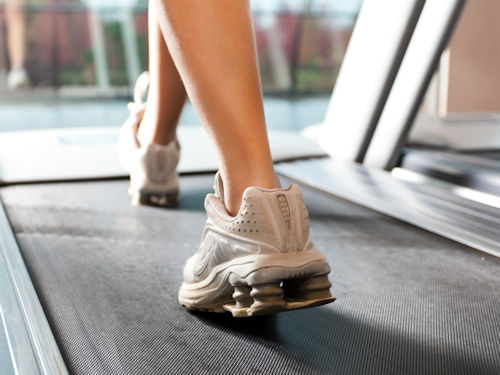
3. Posture
When it comes to the practice of correct posture, an individual who is aware of posture will hold themselves to keep their joints and bones in alignment. This decreases the wear of joint surfaces, allows muscles to work efficiently and reduce stress on the ligaments and intervertebral discs that hold the spinal bones together. Correct posture aids in preventing muscle strain and any overuse disorders and goes a long way to reducing symptoms associated with bulging discs.
Key tips for correct posture
- Keep the centre of your ear in line with your ankle when standing and stand directly over the balls of your feet. When standing, your arms should be by your side
- Keep feet shoulder-width apart
- Don’t lock out your knee joints – keep a slight bend in the knees
- Tuck in and engage your abdomen when sitting or standing.
- When working at a computer, set the screen up to be at eye level and your arms should be supported on the desk.
4. Regular Exercise
Regular, low impact exercise is one of the most important things we can do to manage inflammation and pain associated with a bulging disc and to avoid future re-aggravating the issue.
Not all types of exercise are going to be helpful to improve bulging discs so it’s important to speak to your Acupuncturist or engage with informed exercise professionals to put together an effective exercise program.
Exercises like walking and swimming are great! Even simply walking in chest-height water will assist in engaging core muscles necessary to strengthen and stabilize the spine to take excessive pressure off of bulging intervertebral discs. It’s a great, low impact training that can produce some big results!
Again, I’ll emphasise not to do just any type of exercise, even low impact exercises like sit-ups or crunches might sound safe but in reality, it’s one of the worst types of exercises for bulging discs and will set back your recovery time significantly if commence too early in your recovery. If you are unsure, make sure to speak to your Acupuncturist so that they can advise what is going to be right for you based on your individual situation.
5. Sleeping Position

Sleeping well is essential for improving most aspects of our life and hence sleep posture is massively important for spine health! Sleeping well can make or break your recovery from bulging discs and prevent relapse of bulging discs. Sleeping in a proper position allows the body time to heal and recover at rest, which is exactly what your body is needing when you have a bulging disc.
Some things to keep in mind when thinking about your sleep posture are:
- There should be an ‘S’ bend in your spine – just like when you are sitting or standing
- Wherever possible, sleep on your side or back
- When sleeping on your side, place a pillow between your knees to help stabilize your hips and spine whilst sleeping
- When sleeping on your back, make sure to place a pillow under the base of your head and also a pillow under your knees. This decreases the amount of pressure placed on your spine
- Sleeping on your tummy is absolutely the worst position if you have been suffering from a bulging disc! The reason why is because it places excessive pressure on the spine and an already inflamed bulging disc.
- If you absolutely must sleep on your tummy, place a pillow under your tummy and ankles to decrease the amount of pressure being placed on your spine
6. Strengthen Your Core
When muscles in the upper thighs, abdomen, back and buttock regions begin to weaken, the spine will take on additional forces, and “bear” the weight in order to maintain an upright posture. This creates instability of the spine and can play an immense part in why people continually have issues with bulging discs that do not improve.
Strengthening and stabilizing our core muscles will aid in improving overall posture, whilst alleviating pressure on nerves which are commonly impacted by a herniated/bulged disc leading to significant pain relief.
7. Acupuncture
Acupuncture is a safe and tried method of neck and back pain management and is considered to be highly reliable in its ability to reduce pain even in chronic pain conditions. Acupuncture is coming into the spotlight and is becoming more common when dealing with pain and other health complications. Using acupuncture to help manage bulging disc pain is a great way to alleviate back complications that are either acute or chronic in nature.
The initial goal is to help reduce inflammation and muscular spasms to encourage quality of living; to enable patients to engage in rehabilitative exercises.
Acupuncture helps by increasing nutrient rich blood to the area of concern thus initiating the healing process, along with helping the body to release its own natural pain killer chemical – endorphins, which assist with managing pain and reducing inflammation.
Acupuncture is now becoming a popular alternative treatment to taking pain medications as this can provide long term relief along with minimum side effects. Whilst anti-inflammatory pain medications and opioids may help manage back pain in the early stages, Acupuncture is a great way to resolve the pain associated with bulging discs fast and effectively, producing long term results.
8. Seek Care From an Experienced Professional
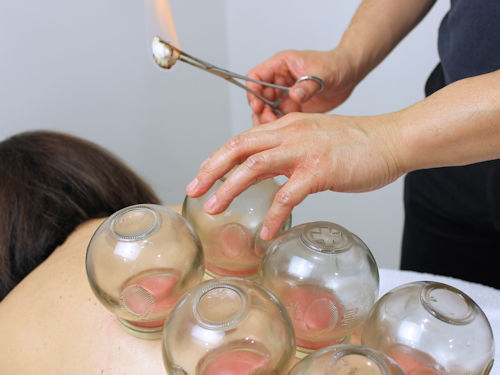
Want to learn how to naturally resolve a bulging disc? The best way is of course to reach out to a healthcare professional like an Acupuncturist that is experienced in dealing with bulging discs!
An Acupuncturist will not only be able to diagnose what is causing your pain-sometimes it may be multiple discs, or, it may not be a bulging disc at all that is causing pain. They will also be able to set out a tailored course of treatment that’s unique to your presentation.
After assessing your situation and advising the significance of the injury, your Acupuncturist will be able to set out an appropriate course of treatment that will get you back on track ASAP!
Treatment plans may consist of treatment therapies such as:
- Acupuncture
- Electro-Acupuncture
- Manual Therapy techniques such as Remedial Massage, Trigger Point Therapy or Cupping Therapy
- Trans-Cutaneous Electrical Nerve Stimulation (TENS) therapy
- Auriculotherapy
- Postural manipulation therapy
- Exercise prescription
- Herbal or mineral supplement prescription
- Lifestyle advice
These are just part of what an Acupuncturist will provide. Starting a treatment plan with an Acupuncturist is definitely a means to achieve faster pain relief and longer lasting results.
Conclusion
Have you had enough of your bulging disc pain?
Bulging discs are extremely common and debilitating. There is so much that can be done, and I hope that if you have been dealing with a bulging disc then you take on what I have shared above-it can make a MASSIVE difference to how you deal with or avoid further aggravations and worsening of your condition.
As always, we recommend speaking to a healthcare professional about your situation. There are many different ‘types’ of bulging discs and there are also different causative factors. Your healthcare professional is the best person to effectively assess and advise the most appropriate course of action for your situation.
I hope that helps shed some light on what you can do to help manage your bulging disc! If you would like to learn how we can help you, please call our friendly team on (02) 4709 6727.

